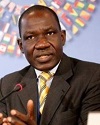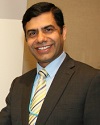LICs Session II: Scaling-Up Public Investment and Debt Sustainability
Seminar Report
The seminar focused on how LICs could scale up public investment to address infrastructure gaps and support growth while maintaining debt sustainability. Panelists noted that it is not an easy task, especially for LICs, whose infrastructure gaps are significant and who also face other critical spending needs. They agreed that long-term concessional financing and improvement in investment efficiency are crucial for these countries to achieve their development goals.
Key Points:
Funding. Collier emphasized that more IBRD lending is needed for public investment, and countries should work on their own domestic policies to gain access to such lending. OECD countries could have a new compact with African countries to help address financing gaps and could allow OECD pension funds to hold African assets, which may not be fundamentally riskier. Collier and Gyan stressed the need to improve efficiency of public investment before scaling it up.
lamine and Gyan noted that external long-term concessional resources are important for infrastructure investment but insufficient. Alamine pointed out that countries should embark on reforms, including improving tax collection and addressing the informal sector, and deepen capital markets to promote mobilization of domestic resources. Gyan emphasized the need for more bilateral efforts and said that LICs should consider setting up a mechanism to promote private investment.
Debt sustainability. Gyan noted that debt sustainability considerations should include long-term social and environmental impacts. Panizza emphasized that debt sustainability assessments (DSA) are actually more art than science. The science part should be used to improve the art of the DSA. DSAs show the policy constraints but come with a large margin of error. The Fund should be careful in communicating the margin of uncertainty and the limitations of this approach.
Development of African countries. Collier pointed out that continued growth of Africa would need to be built on two pillars: energy (reasonably priced and abundant electricity) and connectivity (particularly through urbanization). He noted that some infrastructure, such as roads, needs to be publicly financed, while others, such as railways and housing, can involve private funding.
Capital flows. Noting that high capital flow volatility is associated with weaker growth, Kaminsky pointed out that in the recent decade, capital flow volatility has been generally lower if scaled by country size. Many developing countries are moving toward counter-cyclical policies. In addition, improvements in institutions have dampened these cycles. The probability of excessive capital flow volatility followed by crisis and defaults seems to be lower now.
Quotes:
“In the next decade, if it is going to continue to be the story of Africa rising, not the story of Africa falling, one has to think about financing for investment in energy and connectivity that Africa needs.” Paul Collier, Professor of Economics and Public Policy, University of Oxford
“The last decade (of Africa) was a glorious decade but it is over. There has to be a new act to support faster growth in LICs by providing energy and connectivity, and by using the opportunity of a zero real interest rate. We need to build a practical partnership that brings finance ministers together.” Paul Collier, Professor of Economics and Public Policy, University of Oxford
“DSA is more art than science, and the science part should help improve the art part. The Fund should be very careful in communicating the large margin of uncertainty and limitations of this approach.” Ugo Panizza, Professor, Graduate Institute of International and Development Studies, Geneva
“It is our duty to find solutions to help our economy move away from commodity cycles. The prospects of Africa becoming the largest continent in terms of population, and aspirations of the growing middle class, make us committed to find solutions to implement much needed infrastructure investment to support growth while maintaining debt sustainability.” Alamine Ousmane Mey, Minister of Finance, Cameroon
“We all know fiscal responsibility is critical. But we need to get a balance between long-term social, environment, and other economic benefits when calculating debt sustainability.” Gyan Chandra Acharya, UN Under-Secretary General and High Representative for the Least Developed Countries, Landlocked Developing Countries, and Small Island Developing States.
 |
Moderator: Mitsuhiro Furusawa, Deputy Managing Director, IMF Mitsuhiro Furusawa assumed office as Deputy Managing Director of the International Monetary Fund on March 2, 2015. He joined the IMF after a distinguished career in the Japanese government, including several senior positions in the Ministry of Finance in recent years. Immediately before coming to the Fund, he served as Special Advisor to Japanese Prime Minister Shinzo Abe and Special Advisor to the Minister of Finance. Among his recent ministry postings, Mr. Furusawa served as Vice Minister of Finance for International Affairs (2013-2014), Director-General of the Financial Bureau (2012-2013), and Senior Deputy Director-General of the International Bureau (2009-2010). Mr. Furusawa’s overseas postings for the Japanese government have included IMF Executive Director (2010-2012), Minister (Finance) at the Embassy of Japan in the United States (2007-2009), and Counselor (Finance) at the Embassy of Japan in France (1997-1999). A 1979 graduate of the University of Tokyo with an LL.B. degree, Mr. Furusawa also graduated in 1983 from the École Nationale d’Administration in Paris. |
Speakers
 |
Paul Collier, Professor, University of Oxford Paul Collier is a Professor of Economics and Public Policy at the Blavatnik School of Government, University of Oxford; Co-Director of the Centre for the Study of African Economies; a Director of the International Growth Centre (IGC); a CEPR Research Fellow; and Professorial Fellow of St Antony’s College, Oxford. He was formerly the Senior Advisor to Tony Blair’s Commission on Africa, and was Director of the Development Research group at the World Bank for five years. He researches the causes and consequences of civil war; the effects of aid; and the problems of democracy in low-income and natural-resource-rich societies. |
 |
Graciela Kaminsky, Professor, George Washington University Graciela Kaminsky is Professor of Economics and International Affairs at George Washington University and Research Associate at the NBER. She previously held positions as Assistant Professor at the University of California, San Diego and Staff Economist at the Board of Governors of the Federal Reserve System. She has been a Visiting Scholar at numerous government organizations and a consultant to international institutions, including the Inter-American Development Bank, the IMF, and the World Bank. She holds a Ph.D. in Economics from MIT. She has published widely in leading academic journals on a variety of topics in Macroeconomics and International Finance, including Financial Globalization, Financial Crises, Contagion, Credibility and Inflation Stabilization Policies. |
 |
Alamine Ousmane Mey, Minister of Finance, Cameroon Alamine Ousmane Mey is Minister of Finance of Cameroon.Minister Mey was appointed in December 2011. Prior to his appointment, he was Director-General of Afriland First Bank, the second-largest bank in Cameroon. Mr. Mey, who is a specialist in Risk Capital Lending and Leasing Operations, graduated as an Electrical Engineer from the Aachen Polytechnics University (Germany). |
 |
Gyan Chandra Acharya, the UN Under-Secretary General and High Representative for the Least Developed Gyan Chandra Acharya is UN Under- Secretary-General and High Representative for the Least Developed Countries, Landlocked Developing Countries and Small Island Developing States (UN-OHRLLS). He has three decades of experience in the diplomatic service of Nepal. A strong advocate of the issues affecting LDCs, LLDCs and SIDS, Mr. Acharya has stressed that “LDC, LLDC and SIDS issues are livelihood issues of interest and concern to all, and as such they need urgent global attention and support to complement their national efforts”. He calls for a pro-active role of all the stakeholders in galvanizing international support in a spirit of global partnership and solidarity to make best use of the immense potentials that exist in these countries. |
 |
Ugo Panizza, Professor, Graduate Institute of International and Development Studies, Geneva Ugo Panizza is Professor of Economics and Pictet Chair at the Graduate Institute, Geneva. He is also the head of the Department of International Economics, the Deputy-Director of the Institute's Centre on Finance and Development, and a CEPR Research Fellow. Prior to joining the Institute, Ugo was the Chief of the Debt and Finance Analysis Unit at the United Nations Conference on Trade and Development (UNCTAD). He also worked at the Inter-American Development Bank and the World Bank and was an Assistant Professor of Economics at the American University of Beirut and the University of Turin. His research interests include international finance, sovereign debt, banking, and political economy. He holds a PhD in Economics from The Johns Hopkins University and a Laurea from the University of Turin. |









































